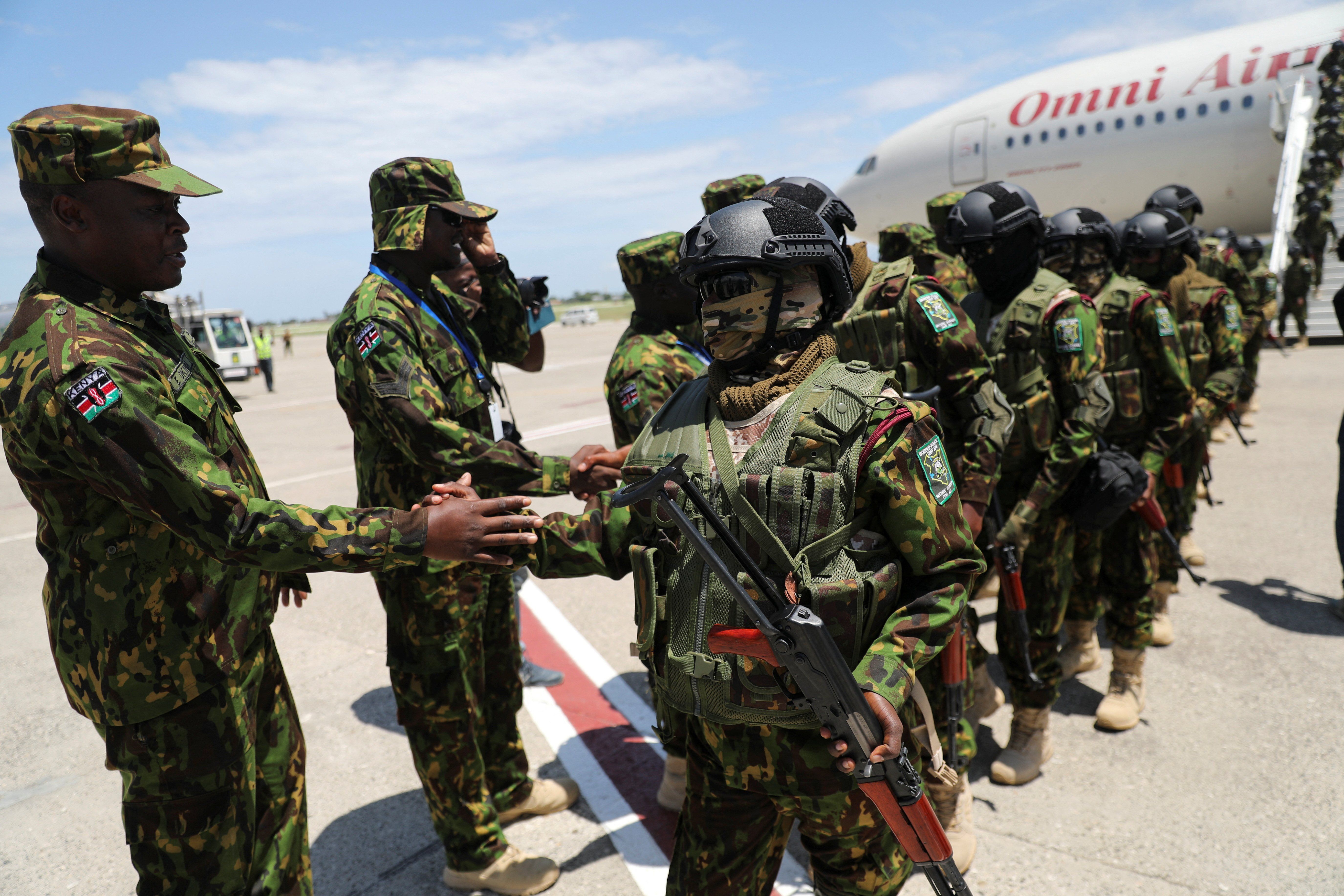Haiti’s Prime Minister Garry Conillecalled for gangs to surrender their weapons and recognize the state’s authority late Wednesday, as a Kenyan-led police mission there enjoys some early success.
Some 200 officers arrived in late June and are trying to take back the capital from gangs that launched a series of highly coordinated attacks in February, ousting former Prime Minister Ariel Henry and seizing about 80% of the capital. The mission received another 200 Kenyan officers on Tuesday, and, within the coming months, the multinational force is expected to see recruits from other countries, including Bangladesh. But oddly enough, both Nairobi and Dhaka are facing severe challenges to law and order at home.
Kenya is entering its second month of deadly protests calling for the resignation of President William Ruto. But Ruto has doubled down, banning protests in Nairobi mere hours before a demonstration was planned for Thursday. Protests are likely to continue and will be met by a violent police response.
Meanwhile, in Bangladesh, at least 32 people have been killed in police clashes during nationwide, student-led protests this week. The young activists are demonstrating over quotas that reserve 30% of government jobs for relatives of veterans of Bangladesh’s 1971 War of Independence. Protesters announced they will force a nationwide shutdown in response to the police brutality in one of the most severe challenges yet to Prime Minister Sheikh Hasina, who has ruled for 20 years.
We’re watching for signs of whether the security mission’s main contributors feel they need to put their own houses in order before helping Haiti.
